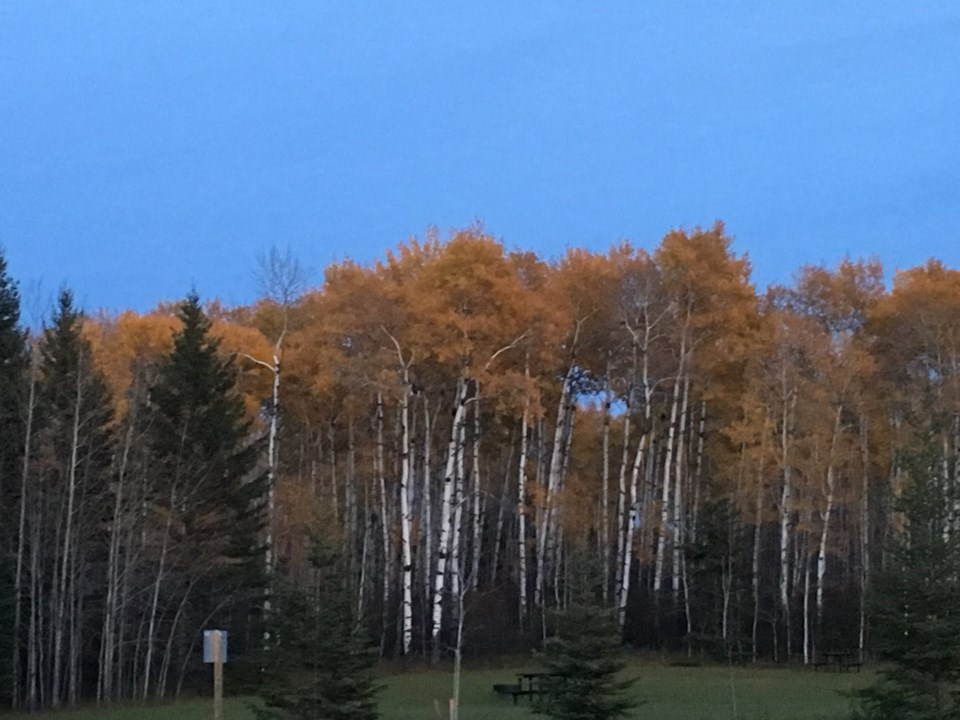Plans to harvest thousands of acres of forest in Meadow Lake Provincial Park have met stiff resistance from some nearby residents.
Cabin owners and outfitters have been expressing concern over the project since 2019, when the province awarded Tolko Industries Ltd. a contract to harvest about 3,100 hectares of forest over five years. The project is expected to begin in mid-October at the earliest.
"It's the opening of a door, or Pandora's box," said Aaron Riley, operator of the local business Whitetail Dreams Outfitting. "Once you've pushed it through one place, it's hard to stop it anywhere else."
Riley said the logging could affect the local environment and his business, which is facing the "worst year of outfitting" he's ever had since American tourism nosedived when borders snapped shut.
He's also worried that the plans don't leave enough space for Little Raspberry Lake and could turn its water, home to rare freshwater coral, into a "slough," he said.
Tolko's consultations are ongoing and outfitters were encouraged to come forward, said Pat MacKasey, a park forest ecologist with Saskatchewan's Ministry of Parks, Culture and Sport. For the coral in the lake, that area would be cut in later years and a larger buffer could be added to protect it, MacKasey said.
While Riley acknowledged the project is partly an effort to address parasitic dwarf mistletoe growth, he said the cutting could go too far. Combined with not clearing the deadfall cluttering the forest floor, it could mean higher risk of fire, he added.
There's already a significant risk of wildfires in the area, MacKasey said. The project is meant to minimize those chances, and it's currently a matter of "when" and not "if" a wildfire sparks, he said.
The project won't clear deadfall, as there is no "cost-benefit" to that, he said, adding the fire hazard is low if it doesn't connect over large areas.
"Unless the province wants to spend hundreds of thousands dollars to clear them, (deadfall trees are) going to remain there and they're going to slowly decompose," he added.
Some residents took issue with the consultation process when the project was first approved last fall.
Longtime Greig Lake cabin owner Leslie Morgenstern said she was in Alberta last November when she heard there was a consultation session on the project in five days. On short notice, she told her husband, "we're going," and attended the meeting, which was packed with concerned residents.
Morgenstern has since become more critical of the project. She's worried that logging will increase the risk of fire and leave it "looking like a golf course," she said.
Tolko spokesperson Chris Downey declined to comment on concerns about the consultation process.
In an Aug. 13 letter to stakeholders, Tolko and its project partner, Carrier Forest Products Ltd., wrote that they had updated the plan to reflect input and review comments the Ministry of Environment had received. The province received a revised plan in July, the letter added.
The letter said "(w)e are contacting individuals, businesses, groups, communities and First Nations that we feel may be interested in the operations outlined in our plan." However, COVID-19 restrictions meant there would be no open houses. Feedback would be redirected to a website containing information on the plans.
Waterhen First Nation Chief Carol Bernard declined to comment on whether consultations had taken place.
Flying Dust First Nation Chief Jeremy Norman said his band's traditional lands are also affected. As the operator of Tawaw Outfitters, Norman said "it hurts us." He's concerned forestry could lead to a more well-travelled game area and ultimately less animals, he said.
"At one point, I think Flying Dust is going to have to take a stronger stance on forestry operations in our backyard, or at least have an opportunity to participate in some way in the industry."




